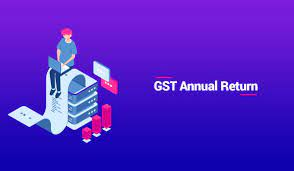GST Annual Return for the FY 2021-22
Applicability
The filing of GST Annual Return is mandated as per section 44 of the CGST Act read with rule 80 (1) of the CGST Rules. The said provisions provide that:
Every registered person, other than the following:
- an Input Service Distributor,
- a person paying tax under section 51 or section 52,
- a casual taxable person
- a non-resident taxable person
- any department of the Central Government or a State Government or a local authority, whose books of account are subject to audit by the Comptroller and Auditor-General of India or an auditor appointed for auditing the accounts of local authorities under any law for the time being in force.
shall furnish an annual return in Form GSTR-9 (GSTR-9A – For Composition Taxpayers) / (Form GSTR-9B – For ECO collect TCS) on or before the 31st day of December following the end of such financial year through the common portal. Accordingly, the due date for furnishing of Annual Return for FY 2021-22 is 31st December, 2022.
Additionally, the section gave the Commissioner the authority to exempt any class of registered people from filing annual returns in accordance with this section by notification on the Council's recommendations. Accordingly, the Commissioner had excused the registered person from filing the necessary annual return for the financial years 2017–18, 2018–19, 2019–20, 2020–21, and 2021–22 via various notifications. The registered person's aggregate yearly revenue cannot exceed Rs 2 crores.
Important points you should know
- The tax payers having aggregate turnover exceeding Rs 2 crore are required to furnish GSTR-9 for FY 2018-19. As we know under GST law, a person is required to obtain GST registration in each State from which taxable supplies are made. However, the aggregate turnover is computed on All India basis.
- The exemption in filing of GSTR-9 is on aggregate turnover basis and not on turnover in State basis, accordingly if a person is having GST registration in 4 States and suppose the turnover of each State is Rs 60 lakhs and aggregate turnover is Rs 2.40 Crores. Such a taxpayer will be required to furnish GSTR-9 seperately for each of the four States.
- Nil Annual Return has to be filed by a person having multiple GSTIN and Aggregate Turnover exceeding Rs 2 Crore for GSTINs with no transactions / turnover during the year. Thus, nil transactions doesn’t absolve a person from filing GSTR-9 provided his aggregate turnover exceeds Rs 2 crores.
- A person having Aggregate Turnover exceeding Rs 2 Crore whose registration has been cancelled during the year is also required to file the Annual returns unless the final return has been filed and cancellation completed before 31st March of the relevant financial year.
- A Registered person who has opted in or opted out of composition is required to file both Form GSTR-9 & GSTR-9A for the relevant period.
- Form GSTR-9 does not allow for any revision after filing.
- The declaration of the information in the Annual returns has multiple implications. Any incorrect information can attract tax demands, interest and penalties on the same, and subsequent litigations.
- Any additional outward supply which was not declared by the registered person in FORM GSTR-1 and FORM GSTR-3B of FY 2018-19 shall be declared in Pt.II of the FORM GSTR-9. Such additional liability shall be computed in Pt.IV and the gap between the “tax payable” and “Paid through cash” column of FORM GSTR-9 shall be paid through FORM DRC-03.
- It is very important to note that Input Tax Credit cannot be availed through GSTR-9 annual return. The credit can only be availed through GSTR-3B return.
Consequences of failure to submit the annual return
Several consequences flow in case the GST Annual Return is not filed on time. For ready reference of our readers the same are discussed below:
(a) Notice to defaulters – Section 46 of the CGST Act provides where a registered person fails to furnish a return under section 39 or section 44 or section 45, a notice shall be issued requiring him to furnish such return within fifteen days in such form and manner as may be prescribed.
(b) Late Fee for delayed filing – As per Section 47(2) read with Section 44(2) of the CGST Act / SGST
Act provides for levy of a late fee of Rs 200/- per day (Rs 100 under CGST Act
and Rs 100 under State / UT GST Act) could be levied which would be capped
to a maximum amount of 0.50% (0.25% under the CGST Law + 0.25% under
the SGST / UTGST Law) of turnover in the State or Union Territory.
(c) General Penalty for Contravention of
Provisions – As per section 125 of the CGST Act, 2017, any
person, who contravenes any of the provisions of this Act or any rules made
thereunder for which no penalty is separately provided for in this Act, shall
be liable to a penalty which may extend to Rs 25,000/-. An equal amount of
penalty under the SGST / UTGST Act would also be applicable. Thus, a total
penalty upto Rs 50,000/- can be levied.
However, penalty under section 125 up to Rs 25,000, can be levied if the ingredients such as willful default, etc., must be established by a process of adjudication allowing a reasonable opportunity to the taxable person and not imposed as a matter of routine.






.png)

Thanks for update
ReplyDelete👍
ReplyDelete